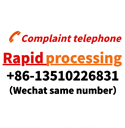1. introduction of energy star
Energy Star (Energy Star), is a dominated by the U.S. government, mainly for consumer electronics products, energy saving plans. The Energy Star Program in 1992 by the US Environmental Protection Agency (EPA) and the U.S. Department of energy (DOE) started, the purpose is to reduce energy consumption and reduce greenhouse gas emissions. The plan was Australia, Canada, Japan, Taiwan, New Zealand and the European Union adopted. The plan is voluntary, energy star standard is usually better than the federal standard for energy efficiency of 20-30%.'s early products of this program are computer information appliances, and then gradually extended to the motor, office equipment, lighting, household appliances and so on. Later expansion to the building, the United States Environmental Protection Agency in 1996 to actively promote energy star building plans by the environmental protection department to assist the voluntary participation of the industry is used to assess the status of the building energy (including lighting, air conditioning, office equipment Plan the building's energy efficiency improvement action plan and follow up operations, so some signs of the energy star can also be found in homes or industrial and commercial buildings introducing new concepts of environmental protection
2. certified product range
Computer and office equipment: such as monitors, printers, fax machines, copiers, one machine, etc.;
Household appliances and similar household products such as refrigerators, air conditioners, washing machines, televisions, video recorders, etc.;
Heating and cooling equipment: heat pumps, boilers, central air conditioning, etc.;
Large commercial buildings and newly built houses, doors and windows, etc.;
Industrial and commercial products, such as transformers, power supplies, etc.;
Lighting: home appliances, lamps, etc.;
Commercial food equipment: such as commercial ice cream machines, commercial dishwashers and so on;
Other commercial products: automatic vending machines, channel identification, etc.
Currently targeted products are: fluorescent lamps, decorative light string, LED lamps, power adapter, switching power supply, ceiling fan lights, consumer audio-visual products, battery charging equipment, printers, household appliances and other products
3. test content introduction
The test content includes: Energy Star safety, EMI, surge, noise (non energy star energy efficiency testing project) optical properties and energy efficiency test items: 1, 2 light efficiency, luminous flux, color temperature, color deviation, color rendering index of 3, the distribution of light intensity, light flux distribution area 4, chroma space uniformity 5 6, switching cycle, luminous maintenance rate of 7, 8 color maintenance, size 9, electrical parameters





 Location:
Location:









